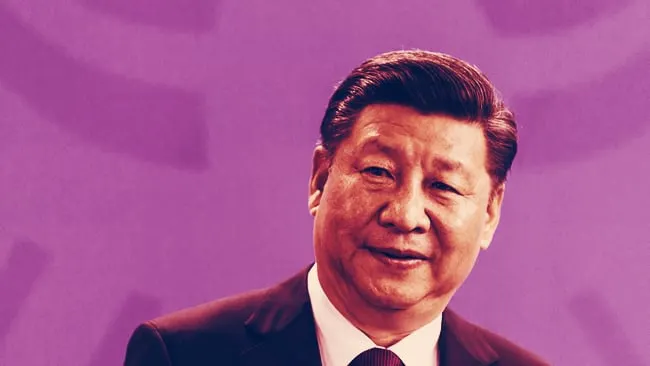Coinbase now has a list of all the cryptocurrencies it's jilted (i.e. nearly all of them). The spurned include such luminaries as EOS, Ripple, Monero, and Zcash. One other stands out: VeChain.
The Singapore-based company is carving out a discrete role as a corporate favorite, and offers security to companies trafficking in luxury—and forgeable—goods. To do this, it uses “smart chips,” which sync real world objects to the VeChain blockchain, supposedly making them traceable. The coin is notable too for its coziness with China, which has otherwise all but banned cryptocurrencies in recent months.
In a quiet PR release on September 1st—only now reported by major outlets—VeChain announced a partnership with the massive “People's Insurance Company of China,” which handles $126bn-worth in insurance worldwide. The PICC, of course, isn’t hanging with VeChain for its tokens—they’re banned, just like every other. Instead, the PICC wants VeChain to blockchain-ize its unwieldy insurance database, citing “overwhelming paper trails.” Has the PICC seriously not figured out how to avoid leaving millions of paper documents strewn across its offices? Maybe it should give Microsoft Office 1997 a try, first.
News of VeChain's new BFF led to an upturn in the altcoin markets. VeChain’s native “VET” token saw an (almost) double-digit rise overnight. VeChain sprang up by 9.69 percent against the US dollar, and its token value is now worth a whopping, er, $0.01952, with a trading volume of some $40m. The only other altcoin doing well is Monero, possibly because an ICO advisor group said some nice things about it. The coin, loved for its anonymity, hit $138 overnight, continuing a weeks’ long surge that has seen it grow in value by 45 percent in recent months.
China’s courting of VeChain seems at odds with its desire to ban all cryptocurrencies. But that hasn't stopped Alibaba, one of China's biggest companies, from filing crypto patents without abandon. A new report by IPR Daily, a consultancy, shows that the Chinese conglomerate has filed 90 blockchain-related patents, surpassing IBM's 89 patents. It takes the country's crypto patent tally to 225, double the amount filed in US patent offices. The People’s Republic, evidently, wants to ban its cake and eat it.
While China decides how it really feels about crypto, the markets remained stable overnight. Bitcoin saw a 1.56 percent increase, while Ethereum grew by only 1.45 percent. Speaking of Ethereum, fans will be heartened to discover the network has a new best friend: Google. BigQuery, a Google-run software platform that performs extensive data analysis, now supports searches on the Ethereum blockchain, which will supposedly make the Ethereum blockchain far easier to track through the regular Web.
The tech giants have floated such a collaboration before. In May, a since-deleted tweet by Ethereum co-creator Vitalik Buterin revealed an excerpt of an email, in which Google recruiter Elizabeth Garcia asked bluntly, foregoing even auxiliary verbs: “Google make sense for you now or in the near future?” Whether BigQuery’s integration with Ethereum does indeed “make sense for Vitalik now” is unclear, but it’s certainly starting to feel like the “near future” is the near...now.
Read Next: Daily Debrief, September 3, 2018





